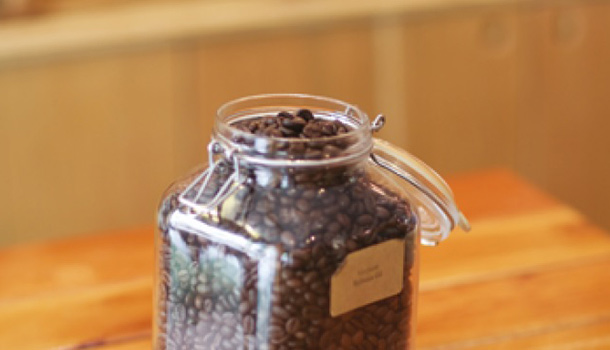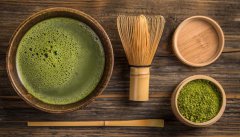Coffee classroom | learn how to protect coffee beans from oxidation and smell at once.

For professional baristas, please follow the coffee workshop (Wechat official account cafe_style)
There is not much difference between buying and preserving coffee beans and preserving ingredients. If you want to drink fresh and delicious coffee, it depends on what coffee beans you buy and how to preserve them. As soon as the coffee beans are roasted, their freshness is greatly reduced and they begin to deteriorate. Especially after grinding, the aroma begins to weaken and the taste begins to lose its flavor. Of course, the coffee powder is not broken, and the shelf life is as long as one year, but what is more important than the preservation period is the "appreciation period". Generally speaking, the grinding of coffee powder should not exceed two days.
Coffee beans begin to oxidize after baking, with volatile aroma and deteriorating ingredients. As a result, many packaging methods have been developed to curb this situation. The packaging method to prevent oxidation is roughly divided into two ways, one is to remove the oxygen from the container and fill it with nitrogen, and the other is simply vacuum packaging. But no matter how good the packaging method is, once it is opened, it still can not stop the pace of oxidation! A bag full of coffee beans has enough oxygen to oxidize ten equal bags of coffee beans. After the coffee beans are ground, the oxidation rate is much faster than when they are not ground.
When coffee beans encounter sunlight, there will be chemical changes, water evaporation, and begin to deteriorate. The higher the temperature, the faster the deterioration, so it is generally recommended to refrigerate or freeze the coffee beans. But the coffee bean itself is easy to absorb the external taste and moisture, so if you do not use a sealed container that can block the external air, the coffee bean will have a bad smell. And when taken out of the refrigerator, the coffee beans will begin to condense moisture because of the temperature difference with the surrounding environment, and the coffee beans will become soft and stale when they absorb the moisture. Therefore, it is best to avoid refrigeration or cryopreservation as far as possible.
In order to get fresh coffee, it is recommended to buy coffee beans within two weeks of roasting, one or two weeks at a time. Then put it in a bag with an one-way vacuum valve (aroma valve), a valve device that squeezes out internal air without allowing external air to enter, store it in a cool place out of the sun and grind it before drinking.
This article is excerpted from the Guide to the brief History, brewing and maintenance of Household Coffee utensils, which is published by Xile Culture.
Important Notice :
前街咖啡 FrontStreet Coffee has moved to new addredd:
FrontStreet Coffee Address: 315,Donghua East Road,GuangZhou
Tel:020 38364473
- Prev

Is matcha latte equal to green tea? As a matcha controller, you must understand
Professional barista communication please follow the coffee workshop (Wechat official account cafe_style) are you a matcha control? Do you know whether green tea is the same as matcha? The Food and Drug Administration of the Ministry of Weifu has given the answer that the raw materials of matcha powder and green tea powder are both "green tea", but the production process is slightly different. Qiu Chuifeng, deputy director of the tea improvement farm of the Council of Agriculture, said after an interview with the media that as far as he knows, Taiwan does not have
- Next

Coffee cold knowledge the finer the coffee beans are ground, the better the antioxidant effect
Communication of professional baristas Please pay attention to Coffee Workshop (Wechat official account cafe_style) Coffee is the most complex food of known natural substances. Scientists have isolated more than 300 kinds of chemicals from raw beans and more than 800 kinds of cooked beans, including many acidic organic compounds, which are not only the source of sour flavor of coffee, but also good for health antioxidants.
Related
- Beginners will see the "Coffee pull flower" guide!
- What is the difference between ice blog purified milk and ordinary milk coffee?
- Why is the Philippines the largest producer of crops in Liberia?
- For coffee extraction, should the fine powder be retained?
- How does extracted espresso fill pressed powder? How much strength does it take to press the powder?
- How to make jasmine cold extract coffee? Is the jasmine + latte good?
- Will this little toy really make the coffee taste better? How does Lily Drip affect coffee extraction?
- Will the action of slapping the filter cup also affect coffee extraction?
- What's the difference between powder-to-water ratio and powder-to-liquid ratio?
- What is the Ethiopian local species? What does it have to do with Heirloom native species?

